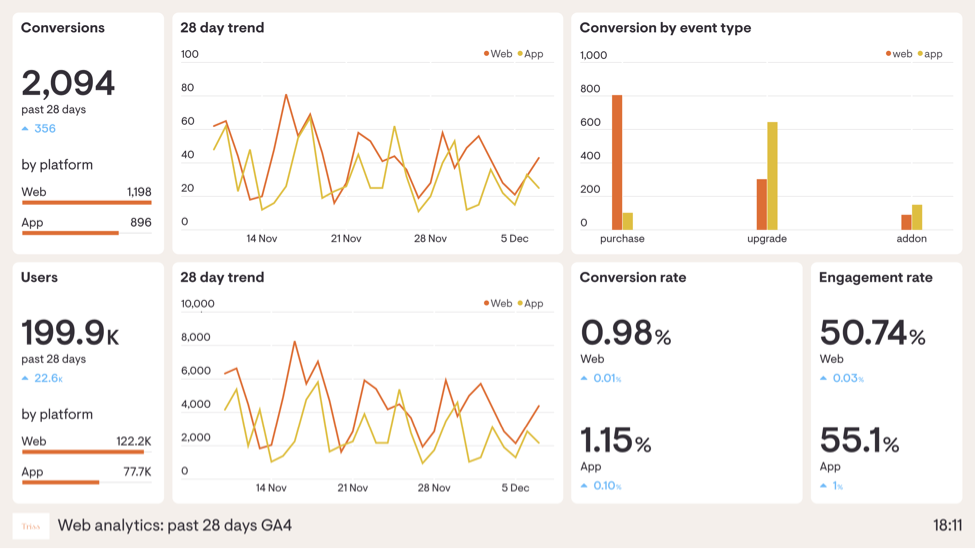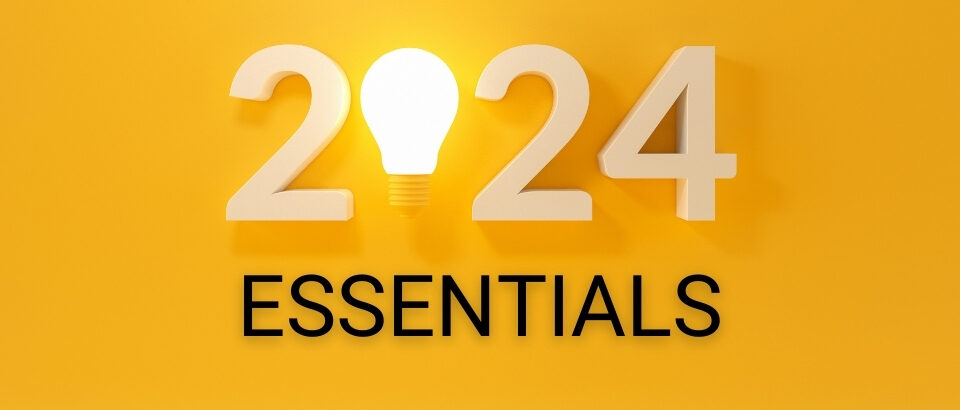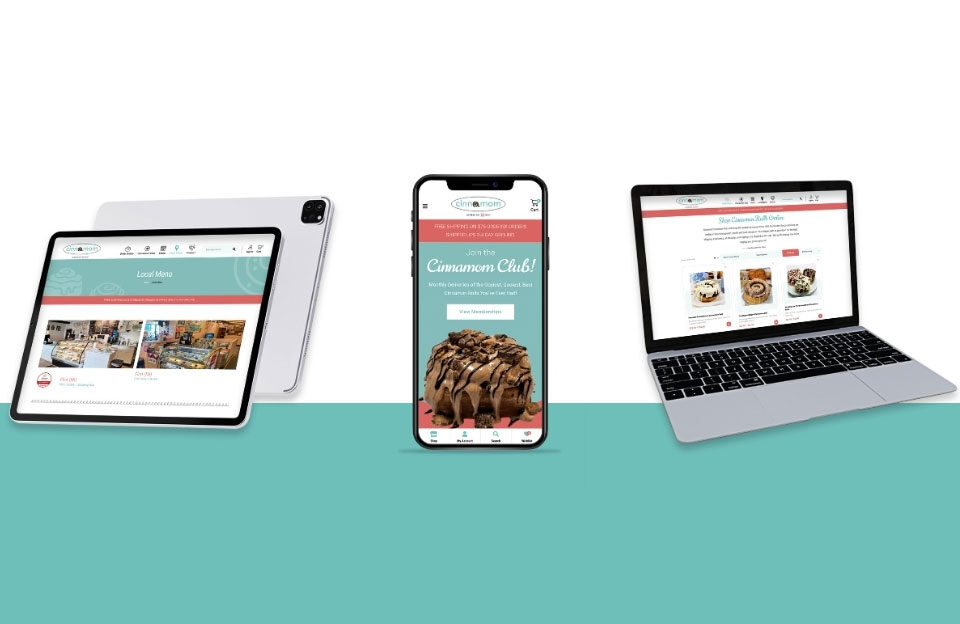


Custom CRM Development Cost – How Much Is It
April 1, 2022


Step By Step Guide How to Add Google Analytics to Your Website
December 20, 2022It is no secret that a small business website can be a considerable investment. However, it’s not always easy to know how much you should spend on your site. Some people believe that the more money they spend, the better their site will become. This is not necessarily true!
In this article, we break down what differentiates an average cost of a website from other expenses and explain what is involved in website design for small business.
The average cost of website design for small businesses
The cost of a small business website will vary depending on several factors, including the size of your company, what you hope to accomplish with the site, and how involved you are in design.
To put things in perspective, you can get small business websites for $3000.


Standard features that contribute to the cost of development
When building a website, there are some common features and functions that may be included in the website design:
Domain registration
This is where you can purchase your domain name for the site. Domain names typically range from $15-$30 on average per year and can be purchased through a domain registrar or hosting company.
Domain names are vital because it is the address of your website and you need to make sure it’s available before purchasing.
Website hosting
Your site will be hosted, which means that all files and media content (images, videos) for your website are stored on a server somewhere in an internet data center or within your company’s infrastructure.
There are many types of web hosting options with different levels of benefits depending upon how much control you want over your environment and price point. The cost can range from $15-$60 per month/year depending on the plan selected and features included, such as storage space and bandwidth capacity limits.
When choosing where to host your site, keep in mind that shared hosting plans are cheaper but slightly slower compared with VPS (virtual private servers), which have better performance at almost equal prices as dedicated servers whose average monthly fee equals $200 per month.
Security certificates (SSL)
Every time someone visits a site, information is transferred back and forth from their computer to the server hosting your site. Suppose someone was able to intercept this information. In that case, it could lead to a security incident or data breach that would need to be dealt with by a professional for you not to lose customers and damage your brand reputation.
For this reason, SSL certificates are needed to encrypt the information being passed back and forth between your site visitors and server. The cost of purchasing an SSL certificate is usually $50-$200+ per year/site depending on the strength, type (single or multi-domain), validation method used, etc.


Site design
Different sites have different designs. Some sites are only informational, while others need an e-commerce functionality to be added to the site design, contributing to its cost.
The average price for a developed website (design + development) starts at $15,000 and goes up depending on the client’s other features in their particular project.
Bear in mind that the design of your sites speaks volumes about your business and will influence the customers’ response.
Number of web pages
Your website should have enough pages to provide all the information your target audience needs. If you are selling clothes, for example, it is recommended that you include several product categories so people can find their favorite items easily.
More content on your site means a better user experience and encourages visitors not to leave without making a purchase!
Some common types of pages you can have on your site include
- Homepage: The homepage is the entryway to your website and is usually the first page people see when they come. It should outline what you do, why it matters, and how visitors can get in touch with you.
- Product or service page: Product pages give more information about specific items for sale on your site. They include photos of the item and a detailed description, so customers have all the info they need before buying from you.
- Contact page: The contact page provides users with any necessary details to reach out directly if they have questions about purchasing products or services from you online!
Added functions
You can incorporate many functions into a website that make it easier for visitors to find and use the information on your site. They can include:
- A search bar, so users don’t have to scroll through the entire page just looking for something specific
- Online shopping carts where you can add items to purchase or save them as wish lists
- A calendar to keep track of events or appointments
- An FAQ page that people can refer to when they have a question about your business, services, products, and more!
Content Management
As content continues to grow across your site, sometimes it will become necessary to organize and manage what is available online in an efficient way. A Content Management System allows you to manage all of this!
In the world of digital content management systems (CMS), WordPress is king! It’s free to use and allows you easily update all aspects of your website, from adding pages and posts, removing content as needed. You can even add new plugins for added functionality if desired.
Some other popular CMS options are Drupal and Joomla. These systems allow you to update everything from text files within posts, images with captions, blog posts, title tags, etc. This makes managing websites and growing your online presence much easier – you don’t have to rely on a web designer just for content updates and management.
Suppose you would like more functionality than what WordPress offers. In that case, you can also build websites using HTML, CSS, Bootstrap, or other coding languages while still maintaining an easily updatable website with CMS options.


Online marketing is essential for success.
For your small business to grow, you must invest in online marketing. Online marketing means that your business needs to be found online. You can do this by having a website through social media channels like Facebook and Instagram, Google AdWords (or other PPC ads), search engine optimization (SEO), etc.
Various things are involved in online marketing, such as PPC ads, SEO, and email marketing. You can do all of this yourself or engage an online marketer to handle your digital marketing strategy for you.
Building your website with DIY options: Pros and Cons
DIY options are great for some people, but it is essential to consider all your available online marketing channels.
If you have a limited budget, then hiring an online marketer who specializes in certain areas of digital marketing may be the best option. But if you do not want to spend any money on your website, there are many platforms with templates that let you build websites without having coding skills or knowledge about design elements.
WordPress is one example of this kind of platform where users can download themes and plugins to achieve different functions like email newsletters.
Pros
- Can give you complete control over what features are included on your website
- Can make you look more professional and trustworthy to potential customers
Cons
- You will need some time (and money) to train how it works if you are new to using WordPress or other similar platforms. This can be a barrier because these websites often require plugins, etc., which may confuse amateurs further.
Also, finding an online marketer with experience in this area is difficult as they are not so common yet. For many small businesses who want control over their website but do not have much knowledge about digital marketing, this platform could be a great option because there is no learning curve required before adding content and features themselves.


Website cost of ownership
Your website cost of ownership is the price you pay every month after launch for hosting and support services. The more high-tech features you add to your website, the higher its total cost will be in web development. Each additional function requires more effort from developers than standard functions like contact forms or About Us pages.
Conclusion
The average cost of website design for small business affordable. Web design costs are one the most significant expenses that many companies incur in their marketing budgets. Still, fortunately, there’s plenty of available information to help you make an informed decision on how much your company should invest in web development.
The average cost ranges from $1,500-$5,000, depending on what features and services you need to be included with your site. We are a low cost website design company and our team can help answer any questions or concerns about website design packages prices, so contact us today if this sounds like something that might be helpful to you!





